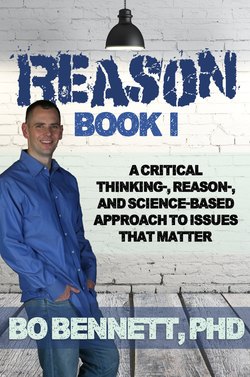Читать книгу Reason: Book I - Bo Bennett - Страница 10
На сайте Литреса книга снята с продажи.
Experts and Trust
ОглавлениеThere is a clear relationship between ignoring the claims of experts in favor of your own “common sense” and trust. If we were to undergo brain surgery, very few of us would question the surgeon’s technique and choice of surgical instruments. Why? Our level of trust in the surgeon is high, and our level of confidence in our own understanding of the topic is very low. But what if the Internet was full of websites claiming that brain surgery was a conspiracy and just a surgeon’s way of separating you from your money? No matter how full of crap these sites were, you may be persuaded by their strong emotional appeals, anecdotes, and cherry-picked data. You would be under the illusion that your level of “knowledge” on the topic is strong, and conversely, your level of trust in the surgeon would drop, to your own, and often society’s detriment.
Here are some things to keep in mind to prevent this intellectually dangerous downward spiral.
•Don’t think that reading a few articles on the Internet makes you more qualified than a scientist who spent 6+ years studying the topic and many more researching.
•Realize that conspiracies are a lot less common than you might think they are.
•Don’t trust people; trust the science. Separate the message from the messenger. Look at the sources and give more weight to meta-analyses that combine sometimes hundreds of studies into one.
•Ask yourself if your views on the issue are politically motivated. The scientific conclusions are sometimes politically incorrect and provide evidence against the claims and positions of your political party. But science does not care about your politics, and neither should you when it comes to separating fact from fiction.
